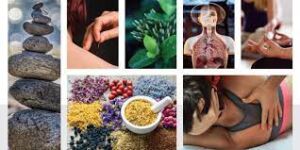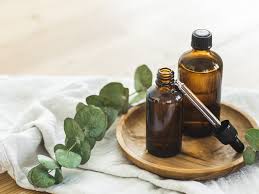From Acupuncture to Herbal Remedies: A Guide to Alternative Treatments
Alternative treatments are becoming increasingly popular as people look for more natural ways to treat their physical and mental ailments. Alternative treatments encompass a wide range of holistic remedies, such as therapeutic massage, acupuncture, aromatherapy, homeopathy and chiropractic treatment. These treatments are based on the belief that restoring balance to our bodies is key to achieving health and wellbeing. They focus on treating the whole person rather than simply looking at the symptoms of a disease or ailment. Many alternative treatments have been proven to be effective in relieving stress and anxiety, reducing pain levels and aiding recovery from injuries or illnesses. Studies have also shown that these treatments can be beneficial in addressing chronic medical conditions such as arthritis or fibromyalgia. With an ever-growing body of evidence supporting the use of alternative therapies, more people than ever are turning to them for relief from their ailments. Please keep reading for details on the following topics:
Yoga
Aromatherapy
Herbal medicine
Essential oils and their uses
Precautions when using herbal medicine

Yoga
Yoga is a physical and mental discipline that originated in India. It involves the practice of various physical postures, breathing exercises, and meditation. Yoga is an exercise of the mind and body that can help improve your flexibility, strength, and balance, as well as your mental wellbeing. During yoga one positions their body in various positions whilst concentrating on breathing

Importance of yoga
To reduce stress
To improve sleep
To improve balance
To manage depression and anxiety
To manage body weight
To manage pain in the neck and lower back
To reduce symptoms of menopause
To manage symptoms of hypertension
Yoga can help improve physical health
Yoga can help improve your mental wellbeing
Yoga can help you connect with yourself and the world around you
Aromatherapy
Have you ever felt relaxed and rejuvenated after inhaling the scent of lavender or peppermint? If yes, then you have experienced the benefits of aromatherapy. Aromatherapy is an ancient practice that uses natural plant extracts to promote physical and emotional well-being. People practice smelling essential oils to promote healing. The essential oils used in aromatherapy have been found to have therapeutic properties that can help alleviate stress, anxiety, and other health conditions. In this article, we will explore the history of aromatherapy, the different types of essential oils used, and the benefits of incorporating aromatherapy into your daily routine. So, let’s dive in and discover the wonders of aromatherapy!
Benefits of aromatherapy
Nausea
Pain and body aches
Anxiety, agitation, stress, and depression
Fatigue and insomnia
Muscular aches
Headaches
Circulatory problems
Menstrual problems
Menopausal problems
Alopecia, or hair loss

Herbal Medicine
Herbal medicine is an ancient practice that has been used to treat a variety of ailments for centuries. Herbal remedies are derived from plants and herbs, which are known for their natural healing properties. These remedies can range from teas, tinctures, and salves to essential oils and capsules, providing a wide range of benefits for physical, mental, and emotional health. From stress relief to pain management, herbal medicine can offer alternative treatments for a variety of issues.
Parts of the plant used in treatments
Roots
Leaves
Berries
Flowers
Fruits
Ways in which herbs are prepared
-Dried
-Minced
-Powdered
-Capsules
-Oils
Ways in which herbal products are used
-Food supplement
-Essential oil
-Tablet
-Lotion
-Shampoo
-Brewed tea
ESSENTIAL OILS

Essential oils have been used for centuries to promote wellness and wellbeing. They have a range of therapeutic benefits, from providing stress relief to improving skin health. They are also known for their ability to help restore balance to the mind and body. From energizing citrus oils to calming lavender, there is an essential oil for every need. With a little knowledge and understanding of their properties, essential oils can become an integral part of your daily self-care routine.
Types of essential oils and their uses
Peppermint– Digestive problems. Avoid drinking peppermint oil
Clove– An antioxidant and antifungal oil which can be applied on the skin to treat toothache and mouth sores. It can also regulate blood sugar and improve bone health. The oil must not be swallowed
Basil– Used to increase concentration and manage depression. Do not use during pregnancy
Citronella– Used as an insect repellent
Black pepper– Helps stimulate circulation as well as relieve bruises and pain to the muscles
Eucalyptus– Helps keep the airway clear during a cold or flu. Avoid if allergic to eucalyptus
Jasmine– Can be used as an aphrodisiac and stimulant
Lavender– Helps alleviate anxiety, inflammation, headaches and promotes sleep. Can be used on minor cuts and burns. Do not ingest.
Rosemary– Improves memory. and promotes hair growth
Tea tree– Antiseptic, treats burns, acne and insect bites. Do not swallow.
Black cohosh– Helps alleviate menstrual cramps
Garlic– Used to lower blood pressure and cholesterol. Also useful for managing athlete’s foot and high blood pressure
Ginseng– To boost energy, immunity, and brain function. Also helps manage diabetes and inflammation
St John’s Wort– Helps improve the mood of persons suffering from depression and inflammation
Turmeric– Helps treat inflammation and reduce blood clot formation. Also useful in the treatment of diabetes and osteoarthritis
Ginger– Helps treat colds, headaches, motion sickness, nausea, migraines, and high blood pressure
Chamomile– Helps relieve nausea, diarrhea, constipation, stomach pain, urinary tract infections, wounds, and upper respiratory infections. Can be used as a sleep aid. Avoid if allergic to daisies, ragweed, or marigold. Can interact with blood thinner medication.
Green tea– Used to manage fatigue, diabetes, heart disease, and high blood pressure. Also helps prevent arteriosclerosis and certain cancers, lower cholesterol, and weight loss
Red raspberry -Leaves help tone the uterus and control menstrual cramps and heavy menstrual flow
Angelica– Helps increase menstrual flow
Evening primrose– Alleviates premenstrual symptoms (PMS)
Cinnamon– Helps treat prolonged menstrual problems
Flaxseed– Useful for managing constipation and high blood pressure
Things that can contaminate herbal medications
Dust
Pollen
Insects
Rodents
Parasites
Microbes
Fungi and mold
Toxins
Pesticides
Toxic heavy metals
Prescription drugs
Precautions while using herbal medicines
Before undertaking any course of treatment, one should seek the advice of a licensed physician
Before engaging in any complementary medical technique, including the use of herbal medication, you should be aware that many of these techniques have not been evaluated in scientific studies.
The use of these remedies in connection with over the counter or prescription medications can cause severe adverse reactions therefore seek advice from your physician.
Do not self-diagnose
Consult a licensed physician before use
Do not take it with other medications
If pregnant or breastfeeding seek medical advice before using
Follow the instructions carefully. Use only the prescribed dose and not an excess
Seek medical advice when in doubt
Get herbs from trusted sources
Read labels carefully
Disclaimer: The information provided in this content is for general informational purposes only. It is not intended as medical or healthcare advice, diagnosis, or treatment. Always seek the advice of a qualified healthcare professional with any questions you may have regarding a medical condition or healthcare decisions.

